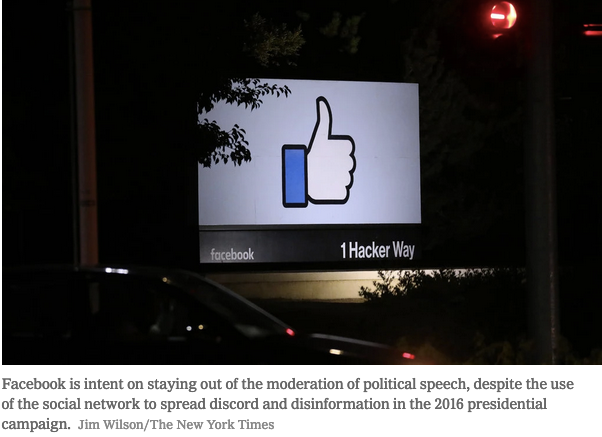. . . A journey through their feeds offers a glimpse of how Facebook rewards exaggerations and lies.
But the rewards are trivial compared with the costs: The influencers amass followers, enhance their reputations, solicit occasional donations and maybe sell a few T-shirts. The rest of us are left with democracy buckling under the weight of citizens living an alternate reality.
. . . t’s hard to determine the extent to which Facebook caused this hyperpartisanship or simply stumbled into it. Did Facebook cultivate more extreme beliefs or simply take what was already simmering and thrust it into the open?
Mr. McGee argued that he always thought this way. Before Facebook, he said, he watched conspiracy-laden videos on YouTube. Facebook merely helped him find his people.
“People are engaging me, encouraging me to share what I think, but these are the inner workings of my mind,” he said. “I’ve been feeling this way for years. That’s why it’s so easy for me to make posts, because I’ve been suppressing this stuff forever.”
And yet when he talks about Facebook, he focuses on algorithms and optimization, not community or ideology. It’s worth considering: Would he be attempting to influence others so forcefully without Facebook’s incentives?
While Mr. McGee was walking away from the National Mall last week to charge his phone, Facebook permanently took down Win the Win, saying it violated rules against “dangerous individuals and organizations,” along with a few other prominent Stop the Steal groups.
But driving home to Tennessee after the rally, he said, he was in good spirits about the future. He’d already started a different group, with a nearly identical name, and it now has over 1,300 members. He also started an online chat room.




